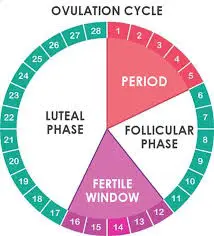
Fertility is a complicated process, so naturally there’s a lot of misinformation. Throughout this blog we will show you some of the weirdest advise people have given to women during pregnancy...

Getting pregnant is no easy task. There are so many differing opinions on the topic. Some of these “tips” are very strange and are sure to have you scratching your head. Come with us and delve into some of the weirdest advice on fertility that we could find.
Enhancing fertility has been a goal for couples as far back as ancient civilizations. While Western medicine has made many bounds with understanding and improving fertility, looking at the practices of our ancestors may be more relevant than we think! Rosita Arvigo, D.N., has spent 40 years researching natural and herbalist remedies, and what she has found, can possibly help you. Read on to learn about the holistic miracles of the Arvigo Techniques of Maya Abdominal Therapy!
“Give nature half a chance, and there is a miracle in store for everyone,” says Arvigo. This miracle she is referring to is the fertility massage. Arvigo recognizes the five systems of flow: arterial, venous, nerve, lymphatic and energetic. No matter what a couple’s problems are with fertility, Arvigo focuses on these systems in order to bring everything back to the way nature intended. This massage is all about normalizing functions and increasing proper nerve flow. Get ready to relax!
You both have the same end goal: increased fertility and the likelihood of conception. Because the goals are usually the same but the situations are usually not, Arvigo offers two specialized programs for two different couples. The first is a one-month program for couples who desire immediate conception. The second is a three-month program, which offers more time to work with and learn about the specific couple and their difficulties. Both include professional sessions to help aide in nutrition, herbalistics, ovulation, and overall support. Pick which one is right for you to ensure the highest likelihood of success.
We did mention Arvigo works with couples, right? That means your man will be getting some attention as well. Arvigo relies on special techniques and tactics to improve greater sexual function in men and relieve any congestion that might have built up in the prostate. Yes, that means they get a massage too. As well as nutrition and diet tips, because chronic digestive complaints are often related to reproductive issues, for both men and women.
Whether you’re trying to conceive right away, improve overall reproductive function with your partner, or search for holistic remedies to naturally soothe the body, Arvigo may just be the doctor of your dreams!
Ancient Fertility Practices

If you think some of the pregnancy myths we believe today are strange, then you will be inclined to find out where most of them come from! Much of what we know today derived from an ancient -and inaccurate- view of fertility. Prepare to be mystified.
As shocking as this may sound, many modern day civilizations still hold this belief to be true in predicting fertility. While of course there is no evidence to support this, Ancient Greeks believed in a varied version of this, as well. To guarantee fertility, a woman was expected to drink goose semen mixed with water.
The ancient Egyptians believed in a similarly bizarre fertility myth. This specific one involved stuffing a few home remedies up the vagina with the hopes of inducing labor. Some of these concoctions included honey-soaked hemp, or a handful of ground corn.
Can’t believe these strange practices? You won’t believe the others either.
Myths Debunked About Trying to Get Pregnant

There are many myths out there circling pregnancy - how to get pregnant, why you’re not getting pregnant, and even the best time of day to try to get pregnant. I’m challenging these myths and proving why many of them you just shouldn’t listen to.
Obviously your fertility decreases as our age increases, but does it fall off the deep end? Unfortunately, women in their late thirties have a decreases in anti-mullerian hormone which is an indicator of your egg reserve in your ovaries. However, this isn’t true for every woman! It really depends on individuals and their bodies, not their age. While you should be prepared in your thirties to possibly seek medical assistance, don’t assume you’re automatically going to have trouble due to your age.
False. In fact, exercise is advised for women trying to have a baby, as long as it’s not too intense. Being underweight or overweight can cause difficulties when trying to get pregnant. Therefore, a healthy level of exercise can play a huge role here.
A few ways to boost your chances of conceiving is to include complex carbohydrates and a varied diet of Omega-3 fatty acids and antioxidants to improve your health. Your diet contributes to producing high quality sperm and eggs.
Many people think that if both partners have no health issues, they should continue trying for a whole year before going to a doctor for medical help. This doesn’t apply to everyone. For instance, those over 36 should see a doctor after 6 months.
Sure, it’s not something you think about until the time comes, but it’s something you need to assess and prepare for by the time you’re thirty if you know you want a child in the future. Why wait for a problem to arise?

Women often turn to ovulation kits since it can be difficult to time when a woman is ovulating. Doing so gives a lot of false hope that can result in even more stress for the couple. Sperm lasts in a woman’s body for two days so by trying on days 12, 14 and 16 you’re bound to hit ovulation.
You should never mix medicines or therapies with the actual treatment. During the process of IVF, your doctor will want to control and mimic your natural fertility without any additional herbal medicines that they may not know about.
It’s crucial for couples to learn how to manage stress during the struggle to conceive. Counseling will give couples the tools for the emotional rollercoaster ride and answers to how a couple may tell their child in the future.

While there are still some questionable vagina trends in 2018, be glad that at least everyone's evolved past spanking as a fertility treatment and leeching your cervix as a miracle period cure — which yes, actually happened. Here, some of the craziest vagina advice women received throughout history, explained by Lydia Kang, MD, and co-author of Quackery: A Brief History of the Worst Ways to Cure Everything with Nate Pederson, and ranked by how visceral my full-body reaction was to hearing about these.
Apparently Romans way-back-when thought that spanking a newlywed woman would increase her fertility. This belief was so widely held that the Romans even had Lupercalia, which, as the authors write in Quackery, was "Basically a public orgy, [where] naked men roamed the streets spanking any woman they came across."
The Ebers Papyrus, which was an Egyptian medical papyrus dating back to 1550 BCE, suggested chasing a woman's uterus around with certain smells as a general treatment for gynecological issues. They believed a "wandering" uterus to be the cause of most problems, and to rectify this, they'd use smelly feet near a woman's nose to encourage a uterus into moving downwards, or try encouraging a high-uterus downwards by putting sweet scents near a woman's vagina. Of course, you can't actually Pac-Man your uterus and chase it around your body, but they didn't know that back then.
Among Hippocrates' many incorrect ideas about gynecological health, was the idea that a woman's mouth and vagina were united by a single "freeway," as the authors put it. To test out if a woman's baby-making parts were up to par, they'd rub garlic on her vagina and see if they could smell garlic on her breath. If so, it meant her mouth-genital highway was traffic-free and thus, fertile.
In the Victorian era, doctors would administer "pelvic massages" to induce orgasm as a cure for hysteria (a catch-all term doctors used for anything ranging from fatigue, anxiety, and depression). These massages weren't seen as a sexual thing, even though it was almost always male doctors performing them on female patients. Eventually, the invention of an electromechanical vibrator came into play and "relieved" doctors from having to perform pelvic massages by hand. The authors even note that many doctors complained about having to perform the massages, and that performing the massages for an hour would cause them to get wristaches. I'd say I feel bad for them, but I feel much, much worse for the women.

According to the Trotula, a medieval women's medicine text from Italy, the cure for itching of the vagina was camphor (mothballs) and egg white to create a pessary. "A pessary, by the way," Kang explained over email, "is an object placed into the vagina. So basically, it's an egg-white and mothball tampon of sorts, to treat anything (yeast infection or STI that might cause itching)."
The Trotula also suggested "fumigating the vagina with a mixture of burned marshmallow, barley flour, and egg whites" to bring on a late period. Suddenly my recent DIY yoni steam experiment is looking even dumber.
Kang explains that Catherine de Medici, the queen of France in the mid 1500s, "drank the urine of a mare and then soaked her vagina with a mixture of manure and ground stag antlers." Because what could inspire procreation more than that smell?
Back in the 1800s when bloodletting was all the rage, it wasn't just limited to leeching your skin or limbs. "For menstrual afflictions," Kang and Pederson write, "[leeches] would be placed on the upper thighs, vulva, and sometimes directly on the cervix." The leech's saliva had special anesthetizing agents so the patient wouldn't feel the bite, but does that make things more terrifying or comforting? All I know is I just locked eyes with my trusty bottle of purse Ibuprofen and said a little prayer.

Hippocrates recommended a recipe of red nitre, cumin, resin, and honey to be applied to a woman's cervix as a cure for infertility. While no one is 100% positive on what the red nitre he was referring to was, Kang and Pederson say it could either be potassium nitrate (used in pickling corned beef and the making of fireworks and gunpowder) or soda ash (what the Egyptians used to mummify people and more commonly, in taxidermy now.) It doesn't really matter what it was though, because as the authors point out, the whole point of the mixture was to irritate the cervix so badly that it opened up for childbirth.
While pubic hair grooming might seem like a new-world thing, Kang explains that it's actually been around for a minute. "Throughout history, removal of pubic hair has been popular depending on the time or culture." Kang said. "Interestingly, since medieval times (and possibly before), the poisonous element arsenic had a side effect of causing hair loss and was used as a depilatory." All the more reason to not mess with your pubic hair!
Kang and Pederson explain in their book the Trotula's go-to cure if a woman's period was "deficient". Simply "bleed the woman from the arch on the inside of her foot." Can you imagine? "Hey doc, my period isn't heavy enough this month and I'd really like to make up for it so can you just stick me with whatever rusty knife you probably have lying around since it'll be 600 years until we discover germ theory ha ha hope I'm the first one in my family to make it to 22 before dropping dead but probably not."
Say it with me. You. Do. Not. Need. To. Perfume. Your. Vagina. Unfortunately the idea of women's vaginas as inherently nasty and needing perfume and fragrances to mask any natural odor has been around for a while now, and I am very sorry to share this doozy with you. From the 1920s-1950s, Kang explains, Lysol douching for "freshness" and contraceptive purposes was very popular. This was a bad idea because obviously, the stuff you use to scrub your dirty toilet should not be in your body, and women suffered burns and ulcers as a result. Lest you think everyone's come a long way since then, Kang also adds that even as late as the 1970s, Coca-Cola douches experienced a blip of popularity.
There’s a lot of info out there and sometimes it can be hard to tell what fact and what's fiction. When you have some questions about your fertility and go googling them make sure you take these facts with a grain of salt.